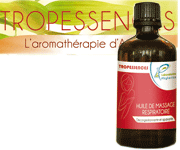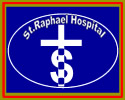Why Register?
- List Your Business
- Business Matchmaking
- WhatsApp Chat
- Personal Messaging
- Showcase Your Products
Product Pictures
Lacor Hospital is a private, non-profit Ugandan hospital, whose mission is to guarantee affordable medical services in particular to the most needy. Founded in 1959 by the Comboni Missionaries for the Gulu Catholic Diocese, after 1961 it was managed and developed by a husband and wife team Drs Piero Corti (an Italian paediatrician) and Lucille Teasdale Corti (a Canadian surgeon) up until their deaths.
A major hospital - with 482 beds and 3 peripheral health centres (with 24 beds each) Lacor Hospital is a major, referral level hospital offering a vast range of diagnostic, therapeutic and preventive medicine services. Over 300,000 patients are treated annually, half of whom are children under the age of six.
An extended and integrated approach to health care - Lacor Hospital is fully integrated into the Uganda National Strategic Health plan and adheres to the principle of complementarity to avoid wasteful duplication of services in the Health Sector's insufficient resources. In the forefront of health training in Uganda - Over 250 resident students attend the hospital's schools for nursing, laboratory assistants, training of Health Educators and AIDS counsellors.
The hospital is also a university teaching site for the Government University of Gulu Faculty of Medicine, which was inaugurated in 2003/2004. The hospital also trains "on the job" masons, carpenters, electricians. More than "just" a hospital Fighting Poverty through Health - Diseases are not only caused by poverty, but are themselves a major cause of poverty (*).
Access to affordable, quality health care is crucial to breaking the vicious circle of poverty leading to poor health and vice versa. Lacor Hospital contributes to social development by offering accessible quality medical assistance. Self-reliance - After its independence in October 1962, Uganda suffered economic downturns, civil conflicts and dictatorships.
After President Y. Museveni seized power in 1986, the country slowly returned to stability and peace. However, the terrible civil conflict which continued in the North until 2006 forced the Hospital to create its own autonomy: workshops for building, repairs and maintenance, power and water generating and distribution systems, waste disposal and logistic support were critical for survival. A refuge in times of war - Even the staff had to live in the Hospital compound with their families in order to be safe.
Between 1996 and 2006, between 3,000 to 10,000 "night commuters", mostly children and women fleeing the rebel attacks in the surrounding villages, would find refuge every night in the Hospital compound. According to UNICEF, over 30,000 children aged 7-14 were abducted in Northern Uganda during this period and were forced into slavery and into the guerrilla ranks. A driver of development - Lacor Hospital is the largest private employer in Northern Uganda and among the 100 top contributors to the National Social Security Fund (75th in 2006).
According to a 2003 analysis**, most of the Hospital's revenues are retained locally in the form of employee wages and purchases. Up to 60% of wages and 90% of funds lent to the staff by the Hospital's interest-free loan cooperative are used to pay for the education of their dependent children. The same study analysed more than 180 small businesses around the hospital and discovered that their survival mostly depends on the Hospital, through purchases made by staff, patient's family and visitors. According to this study, each dollar "invested" in Lacor Hospital as donated funds yields at least twice this amount in direct and indirect revenues in the local economic context. Promoting work ethics based on transparency, responsibility and refusal of corruption.
With more than 70% of the budget being covered through external support, the hospital depends on the donors' trust. Management and staff do their best to deserve that trust through careful accounting of annual activities and implementation of audits by international accounting and clinical experts.

























